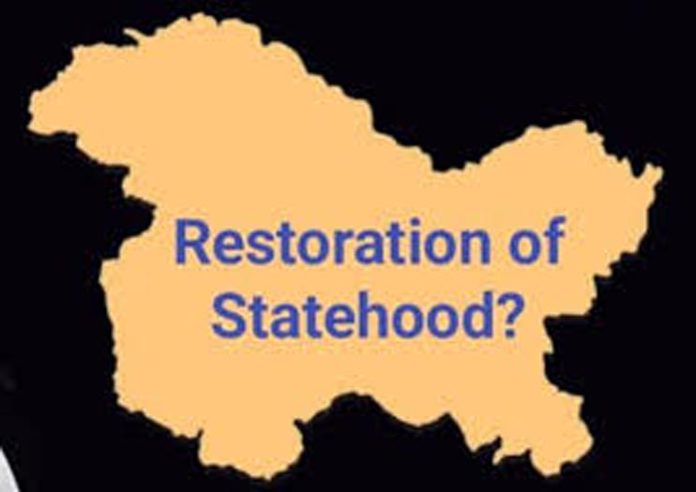Vikram Puri
The transition of Jammu and Kashmir from a State to Union Territory (UT) in August 2019, following the abrogation of Article 370, has raised significant questions about governance, autonomy, and the democratic aspirations of its people. While Union Territory status allows direct administration by the Central Government, it limits the powers of an elected government and hampers the autonomy essential for addressing local issues effectively.
As a State, Jammu and Kashmir enjoyed legislative and executive powers, enabling its Chief Minister and cabinet to function independently. The lack of statehood now means that the Lieutenant Governor (LG), appointed by the Centre, holds overriding authority, often leading to conflicts between the LG’s office and the elected leadership, if any. This clash could stall governance and erode the faith of the people in democratic institutions.
An elected Chief Minister operating within the framework of a Union Territory is reduced to a figurehead, with minimal powers and no control over significant matters such as law and order, which remain with the Lieutenant Governor. The Indian Constitution underscores the role of a State’s Government in ensuring federal autonomy, but Jammu and Kashmir’s current status denies it the privileges enshrined for States.
This dilutes the very essence of democracy, as the elected government cannot function independently to fulfill the aspirations of its people. Before holding elections to local bodies and Panchayats, the Centre must restore Jammu and Kashmir’s statehood to ensure the Chief Minister has the requisite powers to act for the welfare of the people. Without this crucial step, elections will merely be a symbolic exercise, lacking the structural framework needed to empower grassroots democracy.
The National Conference (NC), after recently concluded Assembly elections and emerging victorious, despite operating in a politically challenging environment and a divided mandate, has demonstrated its commitment to the welfare of all regions, including Jammu. In a landscape often marked by regional and communal divides, the NC has strived to bridge gaps and ensure equitable development for the people of Jammu.
Unlike other regional parties that might prioritize one area over another, the National Conference has emerged as a unifying force, representing the entire Union Territory.
Statehood type empowerment would ensure a transparent and accountable governance structure, reinforcing public trust and unity across regions. The restoration of statehood to Jammu and Kashmir is not merely a political demand but a democratic imperative. It is vital for restoring the autonomy and dignity of its elected representatives and empowering them to work for the people’s welfare. A Chief Minister with full statehood powers could function independently and bring about meaningful changes in governance, development, and justice for all.
For Jammu and Kashmir to thrive, it is crucial to uphold its democratic ethos by granting statehood and ensuring that elected leaders have the tools to genuinely serve their constituents. Only then can the region realize its potential as a beacon of development, unity, and democracy.
Its not that people of any particular region want special status to be restored, entire business community of Jammu and other areas also want this to happen because the status empowered them to do business at ease and annual Darbar move, a practice started by erstwhile Kings of Jammu and Kashmir, was aimed at delivering justice at the doorsteps of people and help both regions get good businesses besides save people from harsh winters and scorching heat.
The BJP Government at the Centre must honour its commitment made with the people of Jammu and Kashmir and restore statehood as soon as possible. It would be in the larger interest of nation if statehood is granted to Jammu and Kashmir and then elections to local bodies are held.
(The author is Chairman Trade & Industry
National Conference Jammu)
Trending Now
E-Paper


